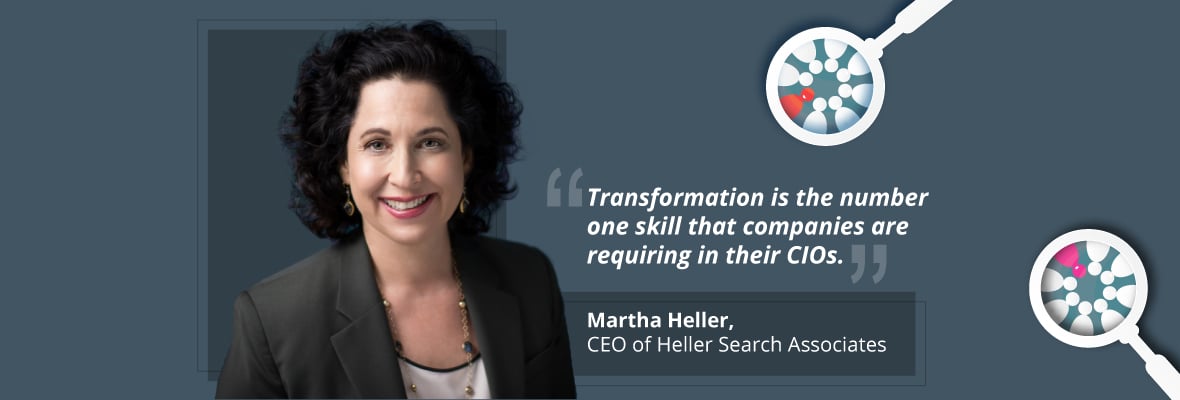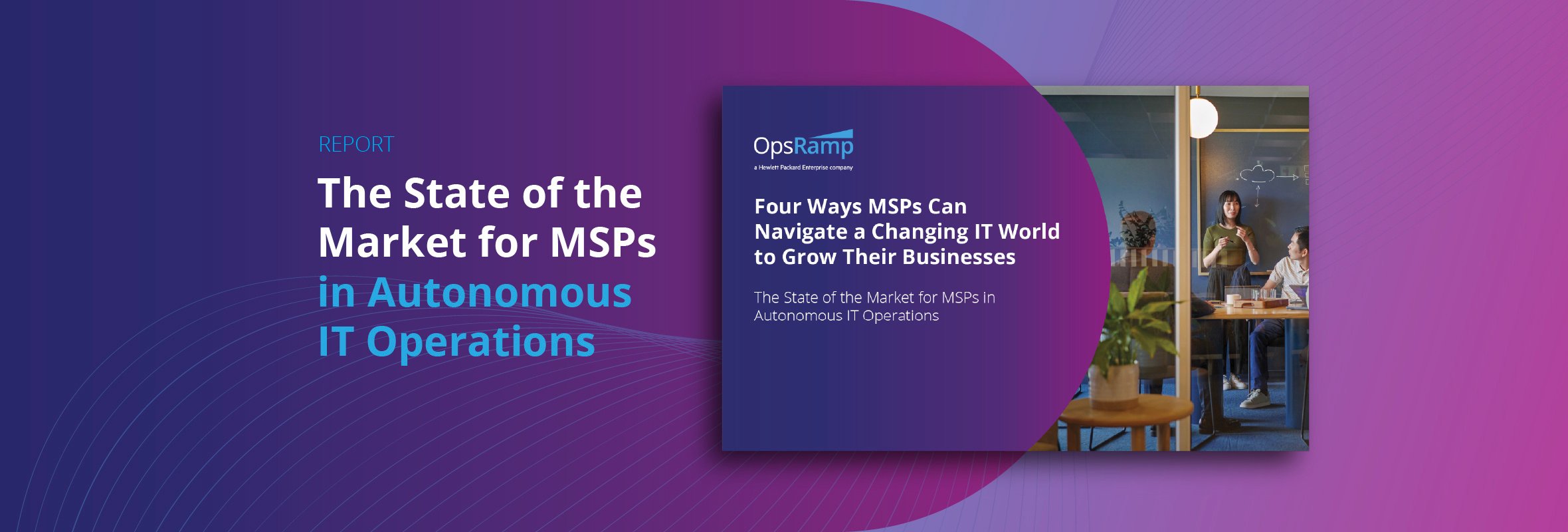Martha Heller is CEO of Heller Search Associates, an IT leadership executive recruiting firm. Martha is a frequent keynote speaker at IT industry events and author of two books: The CIO Paradox: Battling the Contradictions of IT Leadership, and Be the Business: CIOs in the New Era of IT. She spoke about IT career trends on a recent webinar.
OpsRamp: It’s been a wild year, with so much uncertainty. I’d love to know about some of your recent executive searches.
MH: We just completed a highly relevant search for a company called Centene. They’re about a $100 billion company in healthcare and this is the first time they've ever hired this particular role, which was a VP of User Services. What’s new about this is, when you’ve got 80,000 people suddenly remote, you need a vice president level role looking after that end user experience. So, that was a new role born of Covid. We also just completed a search for a large biotech company. They had put infrastructure in the cloud, but when the new CIO came in, he found that there weren't the metrics and the discipline, but he wasn’t sure if the company was getting the efficiencies and performance that they needed. Nobody really had the answer to that. So, we put in a head of infrastructure and operations to bring some discipline into the newly formed cloud environment.
OpsRamp: Those are both great examples that are indeed very relevant to today’s world. What are CIOs looking for broadly across their organizations now?
MH: In March and April, I did what I called a listening tour. I met with a large number of CIOs across all different industries, asking them what's going on? I talked to the CIO of a large alcohol beverage distributor, and she said that their restaurant and hotel and catering business had all plummeted, but liquor stores sales were through the roof. I will say I personally contributed to that. But just so everybody knows, I'm stone sober right now.
OpsRamp: Ha, me too.
MH: But they didn't have the analytics to be able to predict what was going to happen with retail, nor to understand their supply chain and how to shift. CEOs across the board are saying that what Covid taught them is to put data analytics programs on top priority now. Analytics are on steroids now. And of course, we can’t meet and greet to do business anymore. We can’t rely on that physical handshake. Executives have had to determine how to sell digitally and implement the right digital processes and tools. Another area is security. When you have 100,000 people who used to work inside the firewall now working on all different networks out there, that brings a tremendous amount of security risk. So, security, business acumen, digital skills, analytics, those were all important pre-Covid. I say the only difference now is now that CEOs and CIOs are prioritizing them.
CEOs across the board are saying that what Covid taught them is to put data analytics programs on top priority now.”
OpsRamp: How have hiring plans changed since the onset of Covid?
MH: I thought this is the year we go under. I'm going to be selling ice to Eskimos. Who's going to be hiring, and who's going to be using executive search to hire? But May and June were huge. July was the best month for new executive searches all in IT at Heller Search in my 11-year career here. So, my own experience has been, wow, hiring is on the rise. Now, we are seeing hiring freezes at that more entry level position in IT, but if you're going to remain in business through Covid, and pretty much every big business is planning to, you need IT, and you now need even better IT than you did before.
OpsRamp: Has there been a lot of turnover in executive roles?
MH: You're seeing what I think is like the great reckoning where IT has been put to the test, a very difficult test, and let's not blame IT, because underfunding IT has a role to play in where we all are now. I think you're going to see a lot of frothiness, lots of dynamism with CIOs leaving, and new CIOs being hired. Once a new CIO comes in, they're going to be making changes on their senior leadership team. So, at the director, the VP, and the C level, you're going to see a spike in hiring. The manager levels on down, that's where you're going to see some tightening, which is industry dependent, of course.
OpsRamp: Have there been any new leadership requirements for IT executives this year?
MH: Transformation is the number one skill that companies are requiring in their CIOs. Everything is cloud. Whether it's applications, whether it's infrastructure, it’s the cloud journey. That means you’ve got to sell the concept of the cloud to the executive committee, and executive committees are happy to invest in IT when they know what the return is. With cloud, it's not quite as clear as that. You can't really put it in those ROI terms. You basically have to say to them, take a leap of faith with me, because the cloud is foundational to everything we're going to do from now on. Finally, IT leaders must create less of a project management, order-taking culture, and one that is more about product management and co-creation. We are business partners helping to create the demand for the technology, not just delivering on the order.
You're hearing a more diverse array of voices and ideas coming out onto the table because we're remote.”
OpsRamp: How do you think this pandemic will shape IT organization practices moving forward?
MH: I think we're going to have a softening on that hard line of no remote work in IT. You’re going to find a lot of CIOs saying, yes, I am comfortable with remote, but not more than 50%. One, not everybody wants to work at home and employers want to see their people. I'm thinking we're going to wind up with around 20% of people working from home.
As well, when you are more involved in your employees’ personal lives because they're right there on Zoom, it’s creating a more interpersonal style of leadership that I think will serve us all well. When everybody's meeting in a big conference room and you have an idea, but maybe based on your sense of power, you don't speak up. You're not the loudest voice in the room, so maybe you say your idea, but nobody's listening, nobody acknowledges that it's a good idea. On Zoom or WebEx, everybody's got their own little thumbnail and CIOs are saying, I want to hear from you, and now you've got the spotlight. You're hearing a more diverse array of voices and ideas coming out onto the table because we're remote. So, the question will be when we do move some percentage of the workforce back, how do we hold on to both that humanity piece and the ability for a meeker voice in a physical environment to be able to have just as much a power that a Zoom environment affords them.






